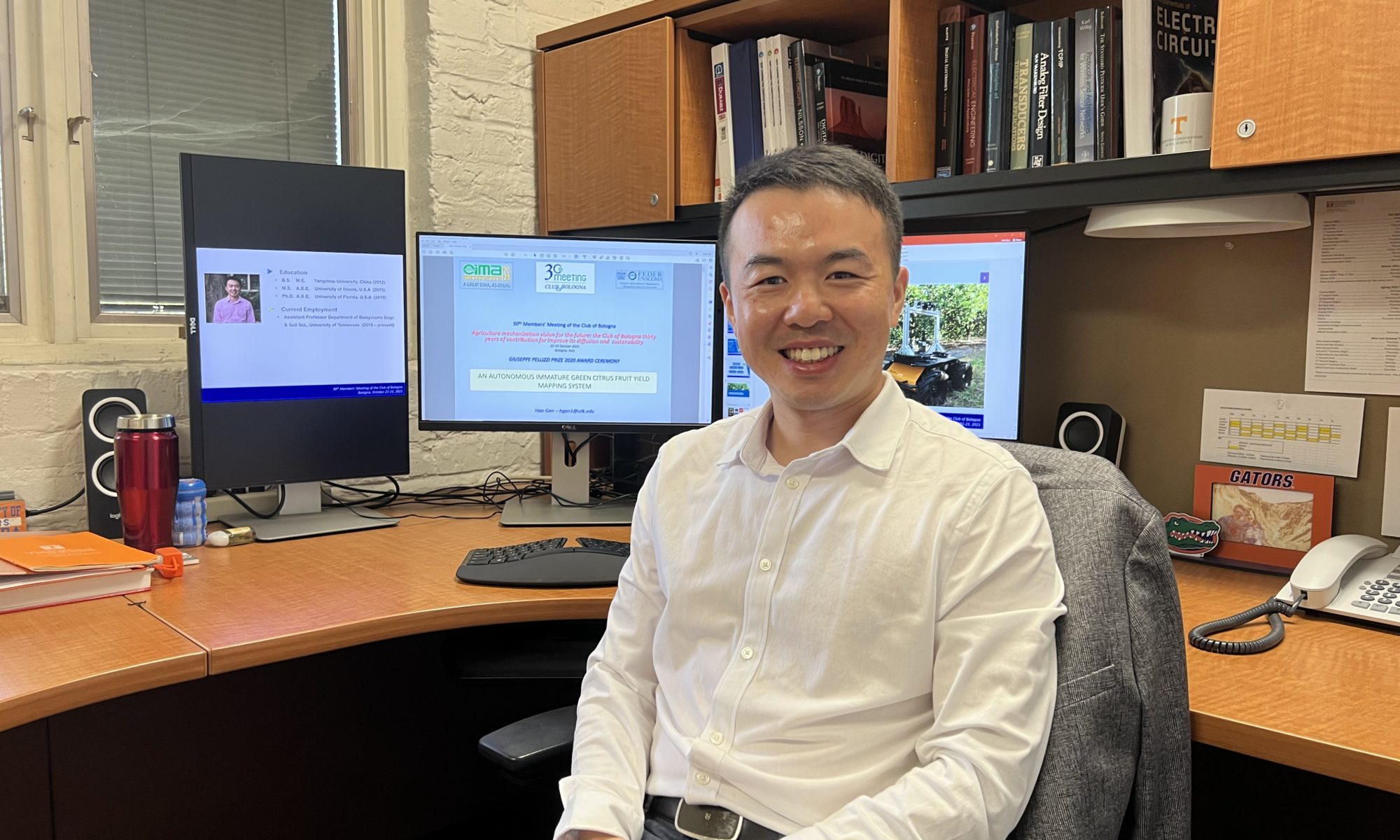
Every two years, the Club of Bologna, an international organization that focuses on strategies for the development of agricultural mechanization, hosts a competition for PhD dissertations in the field of agriculture. The winner of this competition receives the Giuseppe Pellizzi Prize, along with a standing invitation to join the Club of Bologna. The winner of the 2020 Guiseppe Pellizzi prize is Hao Gan, a faculty member in the Department of Biosystems Engineering (BESS) who specializes in precision agriculture.
Gan received his bachelor’s degree in mechanical engineering from Yangzhou University in 2012 and went on to receive a master’s degree in agricultural engineering from the University of Illinois Urbana in 2015. Most recently, Gan earned a PhD in agricultural engineering from the University of Florida in 2018, where he completed his dissertation on yield mapping in specialty crops—specifically oranges. Yield mapping allows growers to make production management decisions earlier in the season and allows more planning for harvest. Through his research, Gan was able to create a thermal imaging system that used a water mist to stimulate different temperatures between the fruit and the leaves. The new system allows for better yield estimation than traditional methods.
Gan teaches several upper-level courses such as research problems in biosystems engineering and electronic systems. He also serves as the team advisor for the senior engineering design students, who recently won national recognition with their projects in the American Society of Agricultural and Biological Engineers (ASABE) undergraduate design competition.
“Dr. Gan was exceptionally mentored by Dr. Lee at the University of Florida, and we are excited that he decided to join the faculty in the Department of Biosystems Engineering and Soil Science,” said Julie Carrier, department head.
“It’s a great honor to receive the Giuseppe Pellizzi Prize from the Club of Bologna, and the fact that my work is recognized on such a prominent stage allowed me to connect with the top experts in the world in the area of agriculture mechanization,” said Gan. “It is a great opportunity for me to learn and improve my vision for future development in this area.”
At the Herbert College of Agriculture, students learn from the best of the best, so that they may be prepared for their own path ahead in the field of agriculture. Gan’s success is one of many on campus, and he provides an excellent example of finding Real. Life. Solutions.
For more on the Department of Biosystems Engineering and Soil Science, visit it’s website.
